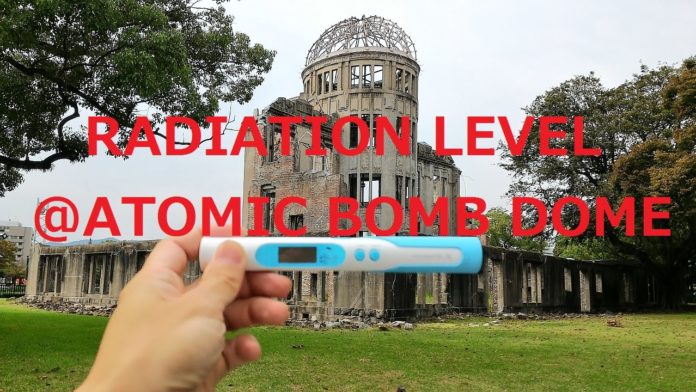Is there still radiation in Hiroshima and Nagasaki? The radiation in Hiroshima and Nagasaki today is on a par with the extremely low levels of background radiation (natural radioactivity) present anywhere on Earth. It has no effect on human bodies.
Additionally, Can you go to Hiroshima now? Hiroshima/Nagasaki is Definitely Safe for People to Live in Today.
What if Japan didn’t surrender? If Japan Didn’t Surrender, America Would Have Leveled It With Battleships. While the attacks definitely made an impression, they did not offer the Navy a long-term strategic role for its battlefleet. Key Point: The U.S. Navy dealt with its surplus of battleships by launching raids along the coast of Japan.
Subsequently, What is worse than an atomic bomb? hydrogen bomb has the potential to be 1,000 times more powerful than an atomic bomb, according to several nuclear experts. An atomic bomb works through nuclear fission, which is the splitting of large atoms like Uranium or Plutonium into smaller ones.
FAQ
What are survivors of Hiroshima called?
People who suffered the effects of both bombings are known as nijū hibakusha in Japan. A documentary called Twice Survived: The Doubly Atomic Bombed of Hiroshima and Nagasaki was produced in 2006. The producers found 165 people who were victims of both bombings, and the production was screened at the United Nations.
Is Nagasaki still a city? Nagasaki, capital and largest city of Nagasaki ken (prefecture), western Kyushu, Japan, located at the mouth of the Urakami-gawa (Urakami River) where it empties into Nagasaki-kō (Nagasaki Harbour).
Why are there shadows in Hiroshima? The surrounding light bleached the concrete or stone around the « shadow. » In other words, those eerie shadows are actually how the sidewalk or building looked, more or less, before the nuclear blast. It’s just that the rest of the surfaces were bleached, making the regularly colored area look like a dark shadow.
Why was Hiroshima chosen as a target for the atomic bomb? Historians say the United States picked it as a suitable target because of its size and landscape, and carefully avoided fire bombing the city ahead of time so American officials could accurately assess the impact of the atomic attack.
Was Japan going to surrender before the bombs?
Nuclear weapons shocked Japan into surrendering at the end of World War II—except they didn’t. Japan surrendered because the Soviet Union entered the war. Japanese leaders said the bomb forced them to surrender because it was less embarrassing to say they had been defeated by a miracle weapon.
Why America dropped atom bomb on Japan? President Harry S. Truman, warned by some of his advisers that any attempt to invade Japan would result in horrific American casualties, ordered that the new weapon be used to bring the war to a speedy end. On August 6, 1945, the American bomber Enola Gay dropped a five-ton bomb over the Japanese city of Hiroshima.
Do hydrogen bombs implode?
Nuclear weapons
In general, the use of radiation to implode something, as in a hydrogen bomb or in laser driven inertial confinement fusion, is known as radiation implosion.
When was the last nuclear test? In this instance, a 1280-feet-in-diameter and 320-feet-deep explosion crater, morphologically similar to an impact crater, was created at the Nevada Test Site. Shot Divider of Operation Julin on 23 September 1992, at the Nevada Test Site, was the last U.S. nuclear test.
Was the H-bomb ever used?
A hydrogen bomb has never been used in battle by any country, but experts say it has the power to wipe out entire cities and kill significantly more people than the already powerful atomic bomb, which the U.S. dropped in Japan during World War II, killing tens of thousands of people.
How does Japan feel about Hiroshima?
The effects of Hiroshima and Nagasaki run quite deeply. One of the most profound effects is that Japan is very pacifistic and one of the few (if not the only country) that has outlawed war.
Is there anyone alive from Hiroshima? Some 127,000 survivors of the nuclear bomb attacks on Hiroshima and Nagasaki are still alive. Sunao Tsuboi is survived by two daughters and a son, AP reports.
What is plutonium bomb? Definitions of plutonium bomb. a nuclear weapon in which enormous energy is released by nuclear fission (splitting the nuclei of a heavy element like uranium 235 or plutonium 239) synonyms: A-bomb, atom bomb, atomic bomb, fission bomb. types: clean bomb.
What food is Nagasaki famous for?
5 Local Specialities That You Need To Try In Nagasaki
- Champon. One of the most popular specialty dishes of Nagasaki is champon, a boiled ramen noodle soup dish, which has fried pork slices, seafood and vegetables swimming in a thick and creamy lard-based broth. …
- Okoze. …
- Shippoku Ryori. …
- Guzouni. …
- Goto udon.
Why Is Nagasaki famous? Nagasaki, located on the west coast of Japan’s Kyushu Island is known for its volcanoes, beautiful offshore islands, historic buildings and hot-spring spas. Nagasaki was the only major entrance port for foreign countries for hundreds of years in Japan’s period of national isolation.
On which island do you find Nagasaki in Japan?
Nagasaki Prefecture (長崎県, Nagasaki-ken) is a prefecture of Japan located on the island of Kyūshū.
How many Hiroshima survivors are still alive? Some 127,000 survivors of the nuclear bomb attacks on Hiroshima and Nagasaki are still alive.
Can a human be vaporized?
While radiation could severely inflame and ulcerate the skin, complete vaporization of the body is impossible.
How hot was the Hiroshima bomb? The bomb had an explosive yield of around 13 kilotons. At the moment of detonation, a fireball was generated that raised temperatures to 4,000 degrees Celsius, turning Hiroshima – where many buildings were made of wood and paper – into an inferno. The blast created shock waves faster than the speed of sound.
Don’t forget to share this post !























